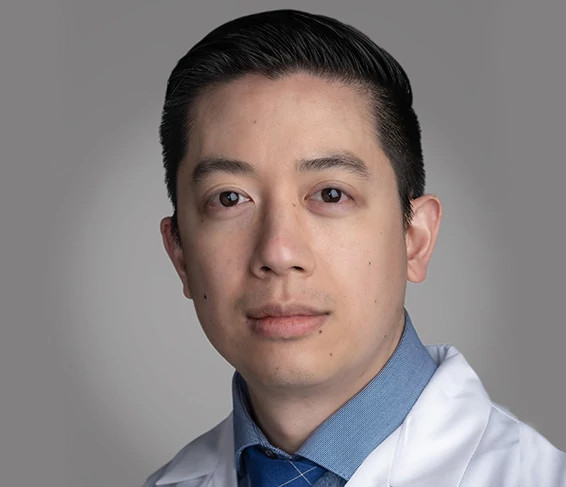Why did you decide to work in oncology?
There is a lot of sorrow and grief in oncology but also courage, love, and dignity. I gravitate toward these moments equally and feel them deeply as an oncologist. They invigorate my care of patients and my research efforts to improve therapies.
Tell us about the condition(s) you specialize in. Why is this an area of interest to you? What led you to focus here?
I care for individuals with acute leukemias and myeloid malignancies. Patients with leukemia can become rapidly ill with significant multi-organ complications. I am drawn to this medical complexity, while the seriousness of a leukemia diagnosis leads to very close relationships with patients and families. In addition, I participate in translational research for these conditions and am joined by brilliant colleagues in this effort — the work is intellectually stimulating and never boring.
What are the main challenges in this area? How do you address these challenges with patients and families?
A major challenge for myeloid malignancies is that the most effective treatments are often also the most toxic. Just as challenging, even the most effective therapies may not work for many people or for very long at all. Thus, my approach to selecting the "right" treatment for patients involves a careful exploration of patient priorities, wishes, and risk tolerance, in addition to the medical nuances of their diagnosis. I often get to know new patients and their family members — their personalities, livelihood, hobbies — before discussing the medical reason for our visit.
Describe your research work in leukemia.
I am a clinical investigator focused on developing new therapies for leukemias through clinical trials and database research. My major interests involve the clinical development of cellular therapies for leukemias and translational studies of leukemia epigenetics to hopefully uncover new treatment opportunities. I have been fortunate to serve as an investigator for several cell therapy trials for leukemias, including those that studied CAR T cells, gamma-delta T cells, NK cells, and T-cell engaging antibodies.
What are you most excited about in your work in the area of leukemia? What holds promise for patients?
Shortcomings in our treatment of leukemia are motivating my colleagues and me to think boldly. I am biased by my own interests and am most excited about cell therapy approaches for the treatment of leukemias. Cell therapies harness the cancer-fighting abilities of the human immune system, which I think is necessary for addressing the biological complexity of acute leukemias. Exciting ideas include pairing bone marrow transplantation with modified T cells, using vaccines to educate T cells to target leukemia, the generation of CAR T cells within the human body, and the use of different types of immune cells such as NK cells to target leukemia.
What do you like to do when you’re not doing research/caring for patients? What do you do for fun?
I love spending time with my wife and our family and experiencing the world again through the eyes of my two boys. In the few moments to myself, I am in my modest home gym.
